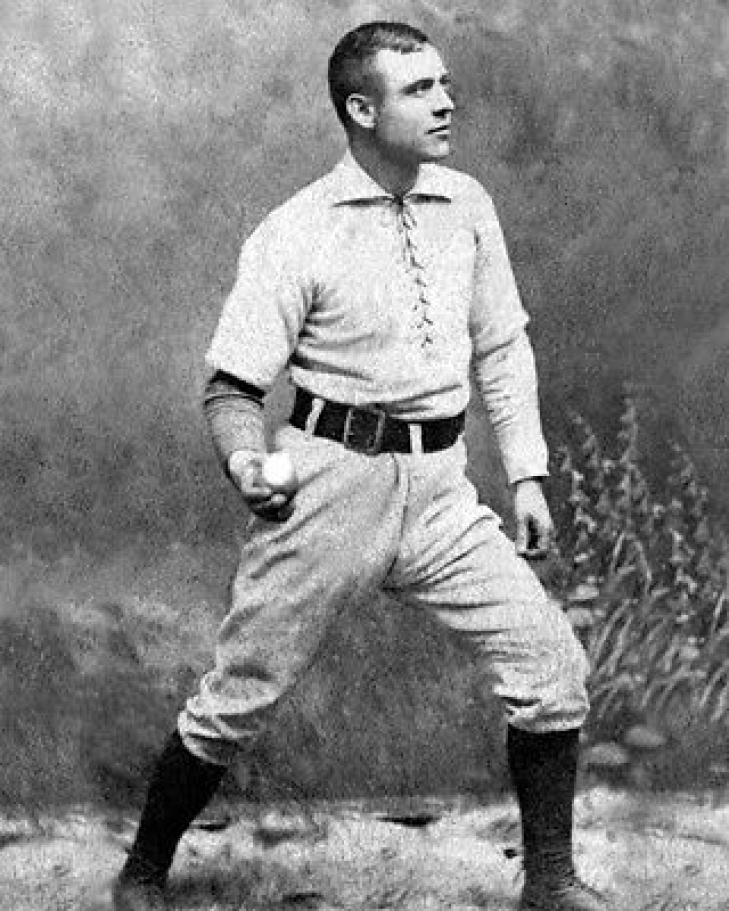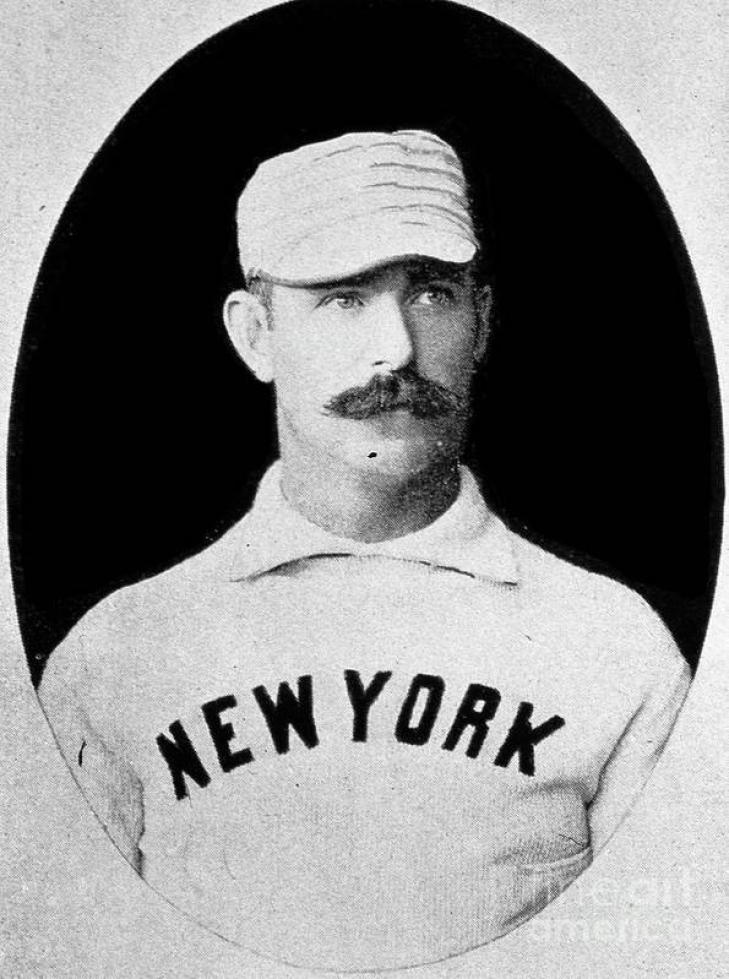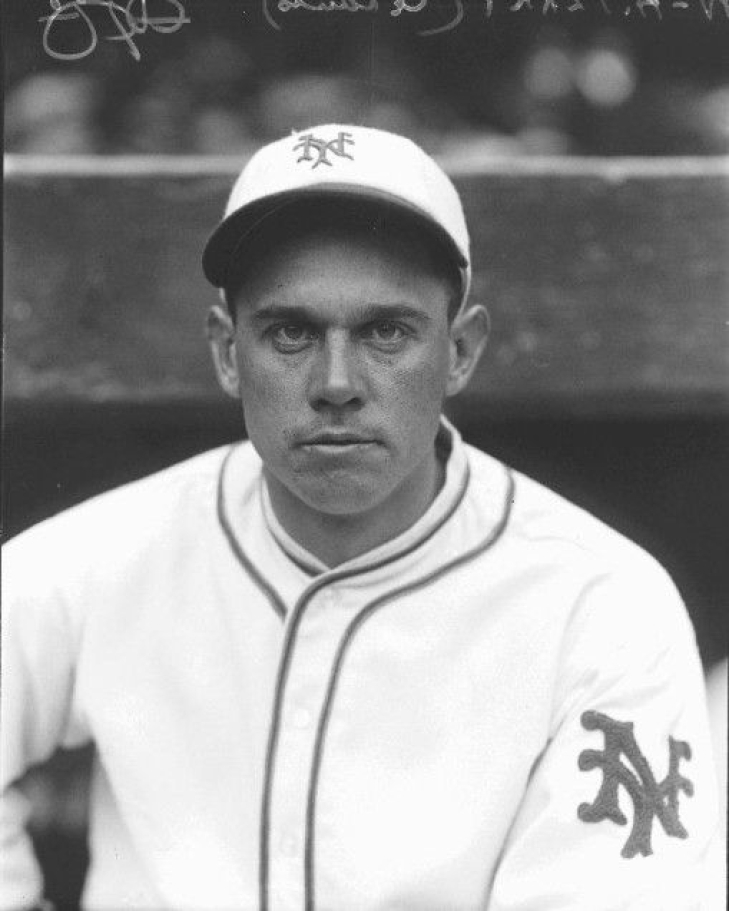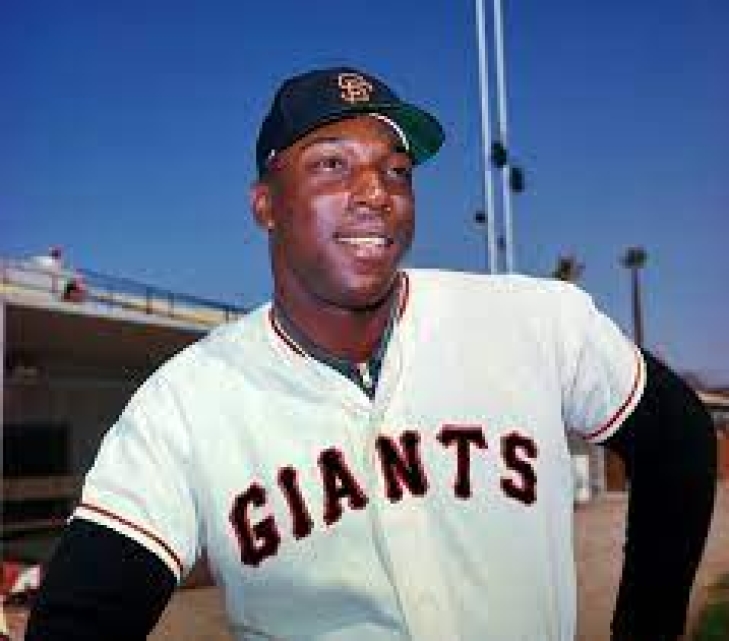
Committee Chairman
11. Mickey Welch
Playing his first three years of high-level baseball with the Troy Trojans, Mickey Welch joined the New York Giants as the Trojans imploded after the 1882 Season.
The Pitcher may have had an under-the-radar career in his day, even in perspective, but it was still brilliant and worthy of high accolades. From 1883 to 1889, Welch was New York’s ace, winning a plethora of games and fanning a litany of batters. Welch was erratic, leading the NL in Walks three times, but his overall mound skill kept him as an elite player.
Welch helped lead New York to win the version of the 1888 and 1889 World Series as their staff ace. Shortly afterward, Welch suffered arm fatigue, and though he was a competent batter, his time passed, but his 238-146 Record was exemplary.
Welch entered the Baseball Hall of Fame in 1973 when the Veteran's Committee chose him.
10. Roger Connor
Roger Connor played three years with the Troy Trojans, establishing himself as a star on the rise before he signed with the New York Gothams in 1883. As the team changed its name to the Giants, Connor elevated himself as one of the best players in the game.
Connor batted over .300 in his first four years in New York and would have likely been named the league MVP in 1885. That year, Connor led the NL in Hits (169), Batting Average (.371), and OBP (.435). As the decade was coming to its end, the Giants were becoming one of the top teams in the NL.
Many people forget that there was a variation of the World Series in the 1880s, and Conner took the Giants to two of them, winning both (1888 & 1889). He jumped to New York of the Players League in 1890, but when the league folded, he was returned to the Giants. He left again for the first version of the Philadelphia Athletics in 1892 before he was traded back in 1893. The Giants dealt him to the Browns during the 1894 Season, which would be it for Connor as a Giant, who had 1,388 Hits with a .319 Batting Average.
Connor was inducted into the Baseball Hall of Fame in 1976 via the Veteran’s Committee.
9. Bill Terry
Bill Terry played his entire career with the New York Giants and was the last National League player to bat over .400, a feat he accomplished in 1930. That being said, Terry was far more than that.
Debuting for New York in 1923, Terry was the Giants’ starting First Baseman for years, with his breakout coming in 1925. Collecting over 200 Hits in six different seasons, Terry batted .341 over his career while also amassing 154 Home Runs and 1,078 RBIs. Terry never won an MVP (though he finished in the top ten six times), but he did lead the Giants to a World Series Title in 1933.
Terry entered the Baseball Hall of Fame in 1954, and many years later, in 1980, he saw his number 3 retired by the team.
8. Willie McCovey
The Giants already had a popular power hitter in Willie Mays, but no rule in baseball says you can't have two.
Willie McCovey joined the Giants organization as an Amateur Free Agent in 1955, and four years later, he was their Rookie of the Year. With all due respect to McCovey, the Giants didn't know what they had early in his Major League career. McCovey was a unique Rookie of the Year winner, as he did not even get called up until July 30, and he won the award against slim pickings with only 219 Plate Appearances, but he had an OPS of 1.085 that year. Pitcher figured out McCovey in 1960, and his Batting Average dropped below .240, and he was sent to the Minors.
Over the first few years of the 1960s, McCovey showed power but not consistency, and it looked like he was meant to be an average MLB player, but he broke out in 1963, winning the Home Run Title (44), and going to his first All-Star Game. After a drop-off in 1064 (18 HR, .220 BA), McCovey roared back, with six consecutive 30-plus Home Run Seasons, leading the NL in 1968 (36) and 1969 (45). In both seasons, McCovey topped the Senior Circuit in RBIs, Slugging Percentage, and OPS, and he won the coveted MVP in 1969. He would have his third straight Slugging and OPS Titles in 1970.
McCovey remained a potent slugger into the 1970s, but the struggling Giants traded him to San Diego after the 1973 Season, but returned as a Free Agent as a popular veteran in 1977, concluding his career with San Francisco for four seasons before retiring in 1980.
The slugger blasted 521 Home Runs, 469 with the Giants, while also collecting 1,974 Hits and 1,388 RBI for the team. The Baseball Hall of Fame inducted McCovey in his first year on the ballot in 1986. The Giants also retired his number 44 in 1980, and he was chosen for the inaugural class of the Giants Wall of Fame in 2008.





